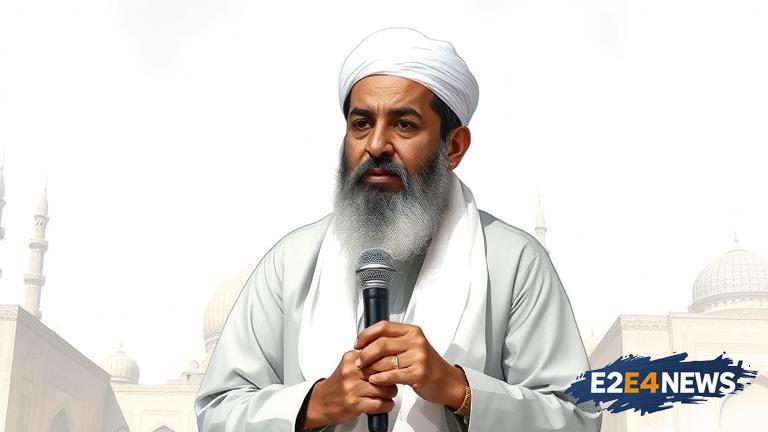A Pakistani cleric, Engineer Muhammad Ali Mirza, has been arrested by the authorities for making controversial remarks that allegedly incited violence and hatred towards certain groups. The arrest was made after a video of Mirza’s speech went viral on social media, sparking widespread outrage and condemnation. In the video, Mirza can be seen making derogatory comments about a particular sect, which many deemed as hate speech. The cleric’s remarks were widely criticized by scholars, politicians, and civil society members, who termed them as divisive and inflammatory. The government of Pakistan took swift action and arrested Mirza, citing his remarks as a threat to public order and harmony. The arrest has been seen as a positive step towards promoting tolerance and combating hate speech in the country. Mirza’s controversial remarks have sparked a debate about the role of clerics in society and the need for responsible speech. Many have called for greater accountability and regulation of hate speech, particularly in the digital age. The incident has also highlighted the importance of promoting interfaith harmony and understanding in Pakistan. The country has a long history of sectarian tensions and violence, and many have welcomed the government’s move to crack down on hate speech. The arrest of Mirza has sent a strong message that the government will not tolerate incitement to violence or hatred. The cleric’s supporters, however, have claimed that he is being unfairly targeted and that his remarks were taken out of context. They argue that Mirza is a respected scholar and that his speech was meant to promote Islamic values, not incite violence. The controversy surrounding Mirza’s remarks has sparked a wider debate about the limits of free speech and the role of the state in regulating it. While some have argued that the government should not interfere with freedom of expression, others have contended that hate speech must be regulated to protect vulnerable groups. The incident has also raised questions about the responsibility of social media platforms in promoting or combating hate speech. Many have called for greater regulation of social media to prevent the spread of hate speech and misinformation. The Pakistani government has faced criticism in the past for its handling of hate speech and sectarian violence. However, the arrest of Mirza has been seen as a positive step towards addressing these issues. The government has also announced plans to establish a new authority to regulate hate speech and promote interfaith harmony. The move has been welcomed by many, who see it as a necessary step towards promoting tolerance and combating extremism. The controversy surrounding Mirza’s remarks has also sparked a debate about the role of education in promoting tolerance and combating hate speech. Many have argued that education is key to promoting critical thinking and empathy, and that it can play a crucial role in preventing the spread of hate speech. The incident has also highlighted the importance of promoting cultural and religious diversity in Pakistan. The country has a rich cultural heritage, and many have called for greater efforts to promote interfaith understanding and harmony. The arrest of Mirza has sent a strong message that the government will not tolerate hate speech or incitement to violence. However, many have also argued that more needs to be done to address the root causes of sectarian tensions and violence in Pakistan. The government has faced criticism for its handling of these issues in the past, and many have called for greater action to promote interfaith harmony and combat extremism. The controversy surrounding Mirza’s remarks has sparked a wider debate about the challenges facing Pakistan and the need for greater efforts to promote tolerance and understanding. The incident has also highlighted the importance of promoting responsible speech and combating hate speech in all its forms.




